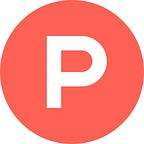The Ultimate Marketing Stack for Startups
This is how most early-stage startups pursue marketing: start an account on Twitter/Facebook/Snapchat, write some articles, cold-blast a bunch of journalists with a press release, and hope for the best.
There’s nothing wrong with doing the above—they are decent, if not necessary, starting points. But, your startup marketing efforts can be much more effective with useful analytics, conversion optimization, and workflow organization. Below are seven must-have marketing tools to help you get the most out of your startup marketing strategy. And if you’re looking for more, here’s a full collection of startup marketing tools:
1. Hotjar
Learn how your visitors are really using your site
This tool is kind of exactly what every marketer is looking for. Hotjar is essentially a conversion rate optimization solution, helping businesses truly understand how web and mobile visitors are using a site. You can look at heatmaps (to see where visitors are clicking and scrolling), funnels (to understand the points at which people are leaving your site), forms (to gain insight on and optimize completion rates), and a lot more. Seriously, this is an invaluable tool for tracking and optimizing how your marketing efforts convert. There’s a free version, but you can also upgrade to “pro” or “business” if you want something more robust.
2. Notify
Get notified in Slack when your startup is mentioned online
There are so many things you can do with this Slack integration, and setting it up is super easy. You can create alerts for anything you want to be notified about, like when your startup or competitors are mentioned anywhere online, when a specific person is mentioned, or when something gets published about an event or topic you want to track. You can also select sources you want to read notifications from (e.g. Twitter, Facebook, Reddit, Blogs, Product Hunt, Medium, News Sites, etc.). If you want to keep your finger on the pulse of anything important to you, Notify is a no-brainer Slack integration (But yes, you do have to be a Slack user).
3. Hey Press
A free database to help you find the right journalists for your startup
Hey Press is a pretty simple tool to help startups connect with the right journalists. All you’ve got to do is type in a keyword, and voila! You’ll get a list of journalists who cover that particular topic—including their email addresses. Woot woot! The tool itself is free, but if you want more lists or contacts, you have to start paying. This is definitely a database geared toward tech startups, but has the potential for broader use down the road. Still, it’s definitely a useful tool if you’re hacking your startup PR early on!
4. Hemingway Editor 2.0
An editing tool that makes your writing bold and clear
Marketing at an early-stage startup inevitably requires you to do some writing—whether for a press release, a blog post, or the marketing language on your website. If you don’t yet have the resources to hire an editor, Hemingway Editor is a great tool for helping you make whatever you’re writing bolder and clearer. It’ll offer up editing suggestions and give you a readability “grade.” As with any automated tool, it’s not quite as good as a human and you’re going to run into some bugs. Nonetheless, it’s worth trying if you’re looking to strengthen your writing.
5. Narrow
Grow your Twitter following and build a targeted audience
If you’re just launching a new Twitter account for a startup, Narrow is a great tool for helping you grow your following and build an engaged audience over time. Use keywords, hashtags, and locations to attract specific users to your profile; explore research tools to help you identify your target audience; and track the performance of various keywords to understand what’s working and how to better optimize your social media efforts on Twitter. The tool costs a little bit of money (a basic account starts at $9/month), but it’s worthwhile if you’re invested in building a strong following on Twitter.
6. Canva
The simplest graphic design tool you’ll ever use
If you can’t yet afford to hire a graphic designer but don’t want your social media posts or documents to look like crap, Canva is the tool of your dreams. It is mostly free (yay!), and the templates will help you get started with whatever you need to create. This tool a simple (and honestly, addicting) way to make your visual content look decent. Some features cost a little more, but it’s definitely worth it. Canva may just be the simplest, best graphic design tool for non-designers on the market today.
7. Curated
Grow your audience by sharing the most engaging content every week
Damn, this tool is fun. We all read a ton of content on the web every week—do you ever wish there was an easy way to share and personalize your own curated list without the hassle of a full-blown email marketing campaign? Curated is the answer to your newsletter dreams. It’s simple: when you discover a piece of content you like, you can save it with one click, add a description, effortlessly edit your curated list of links, and tweak the look and feel of your final newsletter with a simple design tool.
Another cool feature? As your reach grows, you can start to seek out sponsorships and revenue models (which the Curated team will handle on your behalf). When you’re a lean and mean startup (or even a solopreneur), this is a great tool to help you seamlessly build and maintain an engaged audience via email.
Bonus: Marketing Stack
A curated directory of marketing resources & tools
Still want more marketing tools? Check out Marketing Stack, a comprehensive and curated directory of some of the best resources and tools on the internet. You’re about to become the best startup marketer ever.
